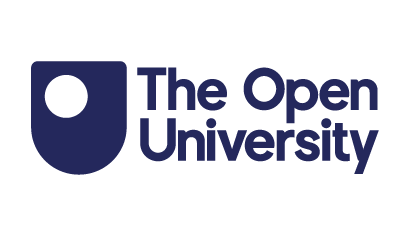Are stackable credits the future of education?
In this article, we discuss why stackability is set to transform the future of education and introduce one of the most innovative examples of stackable credits recently launched in the UK.

Do you ever wonder what the future of education might look like? In our ever-changing society, the educational landscape must evolve so that we can teach the current workforce and new generations vital skills and help to close key skills gaps.
Here at FutureLearn, we’re committed to helping the UK higher education space adapt to meet the changing demands of society, including the needs of students and employers. Earlier this month, we attended the Times Higher Education Digital Universities UK event and led a thought-provoking panel discussion on stackable credits.
We brought together academics from our partner universities and higher education experts to discuss the rise of stackability and why it’s important. King’s College London and Nottingham Trent University spoke to us about the stackable programmes they recently launched.
So, let’s take a deep dive into stackable credits and discuss how they could transform your education and career.
What are stackable credits?
When you enrol on a traditional degree program, you usually take modules, and all of these modules give you credits. For example, in a full academic year, you normally receive 120 credits (equivalent to 1200 learning hours) if you complete all your modules.
Stackable credits can offer a more flexible approach to the academic credit system. They can be used as building blocks towards a larger educational certification, such as a degree. You can earn credits by completing online courses created by credible education providers and stacking them on top of each other to create a full qualification.
This new higher education framework increases the accessibility and flexibility of high-level qualifications, allows individuals to upskill and improve their careers, and promotes lifelong learning.
Why are stackable credits important now?
Stackable credits have actually already been in action in the US for several years now. An impressive 16% of all US degree graduates in 2022 previously graduated with a stackable credential, demonstrating just how relevant they’ve become.
Now, it’s time for the higher education space in the UK and beyond to take notice. Below, we’ve outlined why stackable credits are becoming increasingly important for learners, higher education institutions and the UK government.

Why stackable credits matter to learners
It’s clear that the demand for accredited online courses is growing. Enrolments across our collection of over 50 microcredentials on the FutureLearn platform have grown more than 30% year on year.
Wondering what microcredentials are? At FutureLearn, our microcredentials are single, academic-credit-bearing courses, much like a module you might take during a term at a traditional university. However, with a FutureLearn microcredential, you can study entirely online, whenever and wherever you want.
In addition to increased enrolments, 30% of surveyed microcredential learners on FutureLearn signed up so they could earn university credits. This proves that learners taking accredited online courses are interested in earning certifications and potentially stacking them together to create a full degree.
Why stackable credits matter to higher education institutions
At FutureLearn, we’ve been seeing an increased interest from our partner universities to deliver microcredentials on our platform. For example, in our recent FutureLearn partner survey about stackable credits, one partner said, “I foresee stackable credits being fundamental to our Continuing Professional Development (CPD) and Short Course strategy”.
This is backed up by the recent Holon IQ Survey 2023, where 95% of participating higher education leaders said that they are expecting microcredentials to be integrated within most university degree programs in the future.
Essentially, enabling stackable credits at higher education institutions will allow universities to offer more flexible and diverse course options that will widen access to education – a huge part of our mission here at FutureLearn.
Why stackable credits matter to the UK government
Stackable credits are a key topic and initiative in government today. From 2025, the new Lifelong Loan Entitlement (LLE) will provide individuals in the UK with a loan entitlement to the equivalent of 4 years of post-18 education to use over their lifetime.
Students will be able to use this loan to pay for courses that offer stackable credits. It will be available for both modular and full-time study at higher technical and degree levels (levels 4 to 6 at the time of writing), regardless of whether they are provided in colleges or universities.
The LLE will create a more flexible, accessible and stronger culture of lifelong learning in England, subsequently closing skills gaps and increasing profitability for the institutions behind the courses.
Yvonne Chien, Chief Growth Officer at FutureLearn, stated, “Stackability is a fundamentally key and important evolution for upskilling the nation and increasing the UK’s GDP”.
Why are our partners offering stackable credentials?
We’ve already discussed why higher education institutions might be interested in stackable credits. However, during our panel discussion at the Digital Universities Event UK, we heard from two of our partners, King’s College London and Nottingham Trent University.
The panel discussion was hosted by Wyn Morgan, Senior Higher Education Advisor, and our two academics were also joined by FutureLearn’s Yvonne Chien.
King’s College London: How learners stack their credentials
In our panel discussion, we were lucky to be joined by Dr Mike Bennett, Head of Portfolio & Learning Design at King’s College London.
He told us, “King’s has always recognised that solutions to global issues cannot be understood through strict disciplinary boundaries. That is why our stackable framework enables students to select modules from across King’s to meet their specific professional requirements.”
“Students need to justify their selections via a personal statement and online interview”, he continued. “Our focus is to make sure students achieve academically and professionally.”
Essentially, stackable awards are nested at King’s College London, which means that students can move from a PgCert to a PgDip and then onto a master’s degree. They currently have 30 modules approved as stackable and seek to increase this figure to over 100 in the years to come.
Nottingham Trent University: How learners stack their credentials
We were also fortunate to have Dr Mel Bull, Assistant Head of Postgraduate and Executive Education at Nottingham Trent University in our panel discussion.
“We recognise more of the bespoke requirements of businesses in terms of how they want education delivered in a different way,” she said. “And that’s where we’ve really focused on creating a flexible framework.”
“We made the decision early on that we wanted a multidisciplinary framework,” Bull continued. “We have been able to do this because Nottingham Trent University formed a quasi-faculty called the School of Professional Continuing Education. This is academic-led but works alongside our existing faculties.”
Earn academic credit from Nottingham Trent University
The business school at NTU is offering a pretty revolutionary stackable certification. To receive their Postgraduate Certificate in Leadership and Management Practice, you can take microcredentials not only from NTU but from other universities. This certification really highlights how stackability is set to open doors in education and make it truly flexible.
Want to start building towards a Leadership and Management Postgraduate Certificate? Check out our three NTU microcredentials below, all of which are worth 10 credits each and can be put towards the certification.
- Values-driven Problem Solving in Organisational Systems
- Climate Solutions for a Net Zero Future
- Leadership Resilience and Thriving During Turbulent Times
What are the benefits of stackable credits for learners?
If you’re interested in further education and potentially pursuing a degree or certification in the near future, you may be wondering, what exactly is in it for me? Below we’ll talk about the top benefits of stackable credits for learners.
1. An accessible online learning experience
Most courses that allow you to earn stackable credits are 100% online and asynchronous (containing pre-recorded content), so you can enrol whenever it suits you, rather than being restricted to university term times.
2. Recognisable awards or certifications for hard work
Everyone wants recognition for their learning to help accelerate their careers, but not everyone wants to go through all the trouble of earning a full degree. Stackable credits allow people to earn career-focused certificates that are nationally recognised.
3. Flexible routes to achieving a degree
Many students may be happy to attend a traditional university and enjoy all of the social benefits that come with it. However, there are also plenty of university students who juggle work, family commitments and other obligations. They’ll be able to benefit from more flexible degree options, such as online degrees and certifications that offer stackable credits.
4. Affordable and high-quality learning
Courses that offer stackable credits are typically cheaper than traditional degrees, or at least spread the cost in a far more manageable way. They tend to have a “pay-as-you-go” billing structure.
This allows students to gain the skills they need to land an in-demand career without spending thousands of pounds they don’t have. You may be wondering though – is this really more affordable, seeing as we have student loans in the UK?
That’s where the Lifelong Loan Entitlement will come in, as students will be able to get loans for smaller courses and certifications from 2025.
Final thoughts
So, there you have it. Stackability is already leading to some exciting developments in the higher education space, and this is set to continue.
At FutureLearn, we’re thrilled to be at the forefront of stackable credits and hope that we’ll offer more and more stackable courses and certifications in the years to come.










